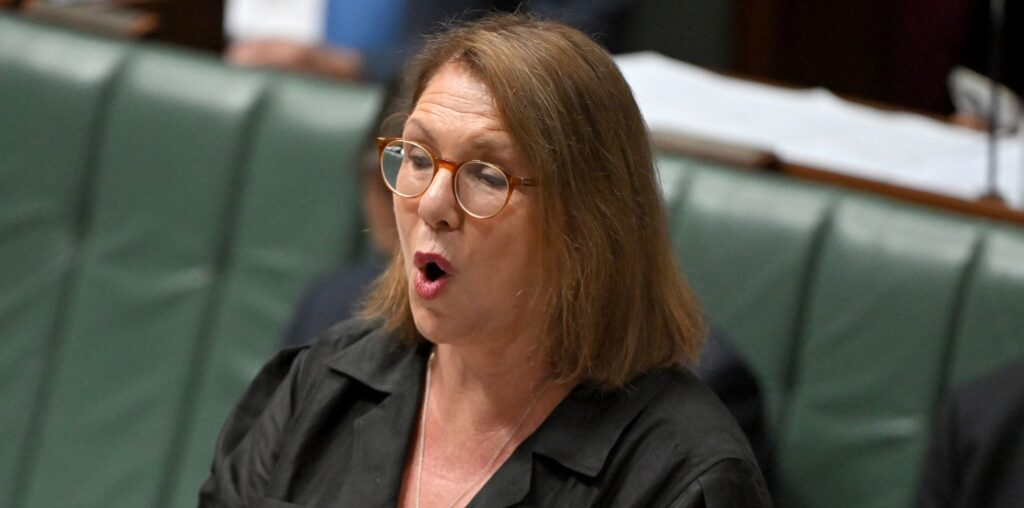The Albanese government must surely realise that something must be done in the Australian aviation sector, where Qantas and Virgin are the country’s most powerful duopoly. Whatever the action, it must go beyond simply propping up a distant third competitor, with relative spare change, at the taxpayers’ expense.
In its latest report into the aviation sector, the Australian Competition and Consumer Commission (ACCC) revealed to the surprise of precisely no-one that, from July to September, customer fees had been hiked by an average of 13%, with some rising as high as 95%.
“Compared to 12 months prior, domestic fares have remained at similar levels. While average revenue per passenger was slightly higher in nominal terms (+2.6%) in September 2024, there was no change in real terms (-0.2%). This has occurred despite jet fuel prices, which typically contributes between 15-25% to an airline’s operating costs, falling by 41% over the same period,” the ACCC report said.
For over a decade, Qantas’ justification for jacking up airfares has been fuel prices, despite the company’s policies of hedging up to 90% of its fuel costs, which would ameliorate the effect of such rises. We have struggled to find any Qantas announcement about fare reductions when fuel prices fall, as they have so dramatically in the past 12 months.
The most expensive flights in the country can be found on Qantas-only regional routes. The two-hour Sydney-Lord Howe Island flight, for instance, is $1,500 minimum for a week’s round trip on February 6 next year. That’s more than the $1,369 for Sydney-Paris on Turkish Airlines at the same time. The 2.5-hour trip from Brisbane to Mt Isa return on the same dates is $778 minimum, whereas Brisbane to Bali on Batik Air is $472.
But perhaps the most telling statistic is that the ACCC estimates Qantas and Virgin now have 98% of the domestic market, with Qantas Group’s share being 65%. This kind of dominance overshadows the supermarket duopoly of Coles and Woolworths (65%), the government-backed big four in banking (70% of residents’ assets), and energy companies AGL, Energy Australia and Origin (between 50-77% of the market in the three east-coast states).
If this concentration happened in any other industry there would be a full-blown government inquiry. Qantas is playing us for mugs with its at-the-ready announcements (often on days when bad news arrives) of new aircraft that are finally, albeit very slowly, beginning to arrive. The new planes will cut the company’s per-seat fuel cost by at least 20%, not that passengers will see it. And Qantas is not building its fleet to match Australia’s population growth; it’s simply to replace existing capacity. It’s a strategy designed to keep prices elevated as high as it can manage.
On the same day the competition regulator belled the cat on airline price gouging in Australia, the federal government committed $80 million to keep ailing Regional Express Airlines (Rex) afloat. Given that the market capitalisation of Rex when it ceased trading on the ASX ahead of liquidation in July was $63.97 million, taxpayer dollars would surely be better spent on equity.
This could be done by way of either a total buyout — as suggested by my colleague Bernard Keane — or a controlling stake as part of a program to rebuild the company with shareholder and management buy-in. Whatever the answer is with Rex, handing $80 million with no strings attached to a board at war with itself, just to get the government past the election without regional travel collapsing, is surely not the right one.
Australian taxpayers are wise to this game, having already seen more than $2 billion of their hard-earned dollars handed to Qantas while meanwhile it illegally sacked workers during the pandemic. The result of this gift? Tens of millions of dollars for Qantas executives and billions for the company’s shareholders, who also include, of course, Qantas executives and board members. It’s nice work, if you can get it.
For clear signs of the immense power and influence Qantas wields in Canberra, look past the Chairman’s Lounge to the decisions of hapless Transport Minister Catherine King: the knockback of Qatar’s bid to increase its flights into Australia, for example, or the failure to introduce passenger guarantees that would make Qantas think twice about any cancellation.
Now we have the government propping up Rex where Qantas won’t fly and Qantas threatening to pull regional routes if the spectre of more regulation looms. But the problems in the Australian aviation sector run far deeper than the egregious and more or less unchecked consumer price gouging and pathetic inaction by a conga line of governments.
If a brutal inquiry is the right answer for supermarkets and a royal commission for the banks, surely the aviation sector’s time has come?
Should there be an inquiry or even a royal commission into the aviation industry? Let us know your thoughts by writing to letters@crikey.com.au. Please include your full name to be considered for publication. We reserve the right to edit for length and clarity.

